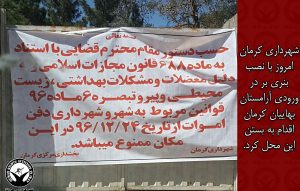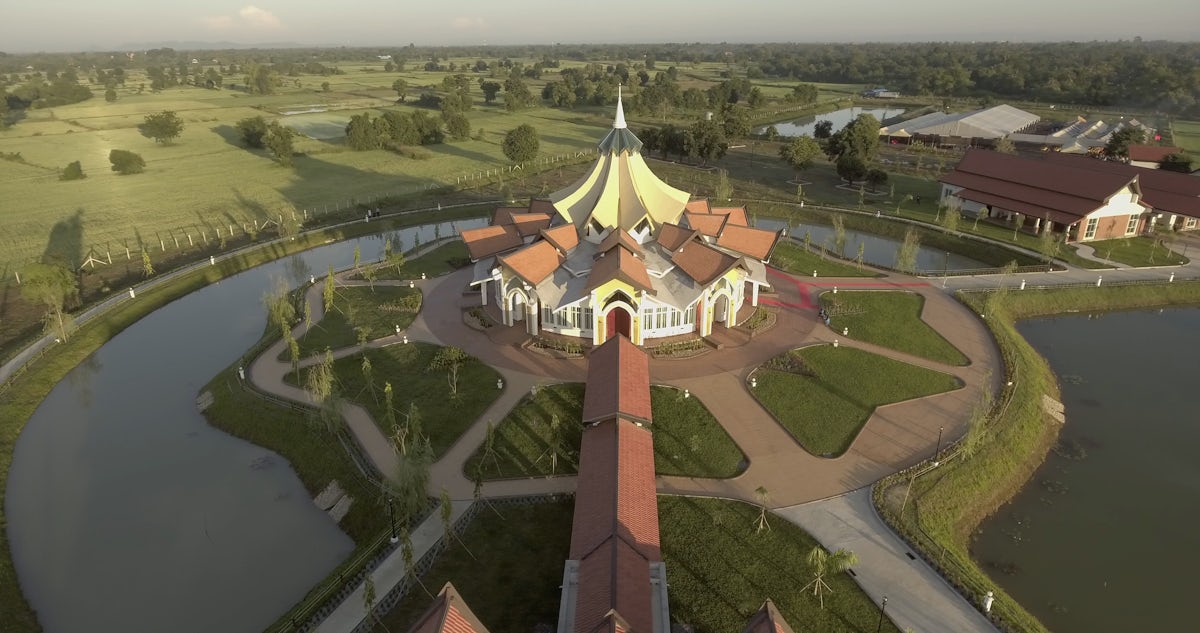
Iran Press Watch, November 10, 2018. –
Shamsi Aghdasi Azamian (شمسی اقدسی اعظمیان), a Bahai from Gilavand, a suburb of Damavand (in Tehran Province), was buried in Gilavand Bahai Cemetery on October 24. Four days later her body was exhumed by unknown individuals and abandoned in the deserts of Jaban in the suburbs of that city. No individual or institution has accepted responsibility, although security forces had told the Gilavand Bahais earlier that they had no right to bury their deceased member in Damavand and that they should perform burials only in Tehran. Gilavand Bahai Cemetery has been the Bahai burial place for many years.
Four days after the burial, in a phone call, police told Mrs. Azamian’s son that the body of his mother, had been found in deserts near Jaban in the Damavand district. A source close to the family said, “After the body of Mrs. Azamian was found, her son was told by security forces to transfer his mother’s body to Tehran. They then faced the son’s objection, since the distance between Gilavand and Tehran is more than an hour … according to Bahai law, the distance between the location of the death and the place of burial should not exceed one hour. As a result, two hours later, the agents carried away the body of Mrs. Azamian without the consent of the family to Tehran.”
A group of Iranian progressive intellectuals has issued a statement condemning this action.
This is not the first time Bahais in Iran have faced the demolition of Bahai cemeteries in various cities. HRANA earlier has reported on the destruction of graves and the closure of Bahai cemeteries by judicial and security authorities in the past several years.
Among Bahai cemeteries, one in the city of Kerman has been sealed since noon on March 15, 2018, by order of the Kerman judicial authorities, and the burial of deceased Bahais has been prevented.
Also, on July 14, 2016, Ghorveh Bahai cemetery, in the province of Kurdistan, was destroyed by government agents.
On December 12, 2013, after confirmation of a court order in Sanandaj and confiscation of the land belonging to the Bahais which had been used as a cemetery, the site was demolished by a bulldozer.
In March 2014, the Bahai cemetery in Ahwaz was closed, and the alley leading to it was blocked by heavy cement blocks. No organization has accepted responsibility for this action.
Also, in the middle of December 2012, Sangesar’s old Bahai cemetery was thoroughly covered in soil and rubble by bulldozers and trucks, and all the graves were covered by dirt and rocks, so that no more graves could be seen.
Since August 2011, the Bahai community of Tabriz has not been allowed to bury their dead in this city, and their bodies are being transferred by intelligence officers to the city of Miyandoab, in West Azerbaijan Province.
Older items can be found in the archive, here. Even older news is here.
























